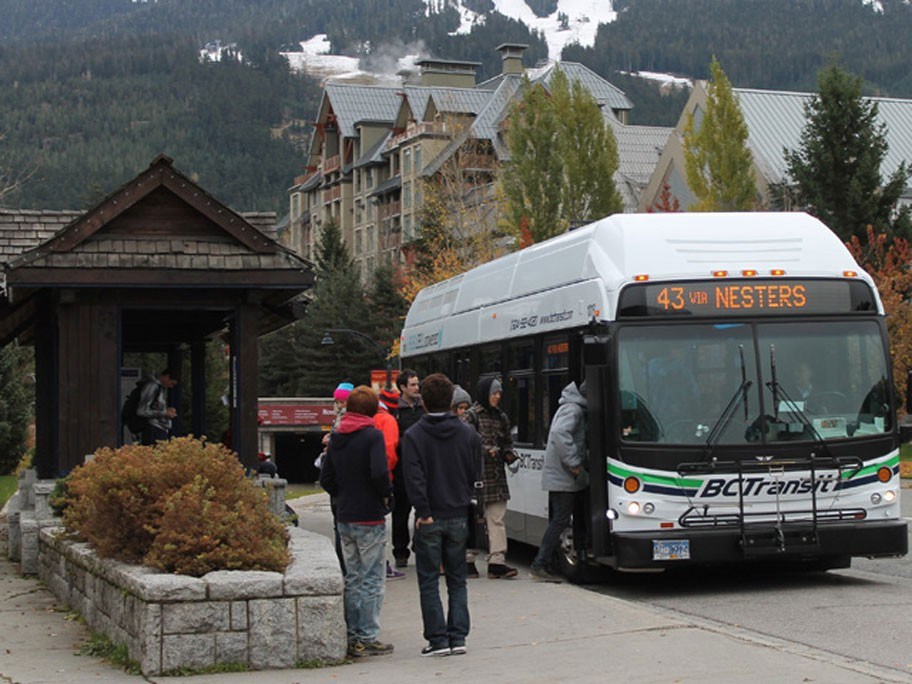Starting Feb. 6, Whistler Transit will switch to a scaled-back winter bus schedule compared to past years in response to an ongoing shortage of drivers.
Due to the labour crunch this winter, many bus routes have not been running at full capacity, resulting in unreliable service and missed buses. This modified schedule will see reduced service compared to the late-winter schedule of past years, effectively an enhanced version of Whistler Transit's shoulder-season schedule, with some additional buses on weekends.
The new service, dubbed Late Winter Plus, will run through Sunday, Apr. 16, before Whistler Transit switches back to its base spring-summer-fall service levels.
On Jan. 24, the Resort Municipality of Whistler (RMOW) council received a presentation from Rob Ringma, BC Transit's senior manager of government relations on the state of the service.The presentation highlighted issues surrounding hiring additional drivers as the transportation industry continues to grapple with labour challenges across the province.
“I think labour challenges are not new to Whistler, but they are new to our transit system since COVID. We're faced with a bit of an ageing workforce. We’re faced with lots of challenges from competing sectors, and unemployment is at historic lows,” Ringma said. “We’re challenged as an industry to get more youth and younger people into the transit business.”
According to Ringma, the service currently employs 66 employees for 68 shifts, resulting in having no spare employees available to fill in for people off on sick leave. Whistler Transit has relied on close to three times the overtime they would typically in the winter to fill the staffing gap, leading to higher costs and increased burnout among staff.
When winter ends, the transit service typically lays off around 15 bus drivers as demand declines. Every season the service needs to hire these employees back, yet another challenge for staffing, which Ringma believes would ease if demand for bus service increased in the spring-fall seasons.
Whistler Mayor Jack Crompton said he is thankful BC Transit developed a plan to improve bus system reliability.
“We understand the labour shortage is impacting the number of drivers, and BC Transit has presented an option to scale back,” he said in a release. "First and foremost, we want residents to be able to rely on and trust in our bus system, so we’re thankful a reasonable compromise could be achieved.”
Following last year's 137-day strike that shut down transit service across the Sea to Sky, the RMOW expressed concern over building back the ridership that was lost during the longest public transit strike in B.C.'s history. The union representing Sea to Sky transit workers helped secure a new five-year collective bargaining agreement, retroactive to April 2020, that includes annual wage increases of 1.5, two, three, three, and four per cent, for a total 13.5-per-cent increase over the term, plus a two-per-cent signing bonus for 2022.
Find more information on the transit system at whistler.ca/transit.




